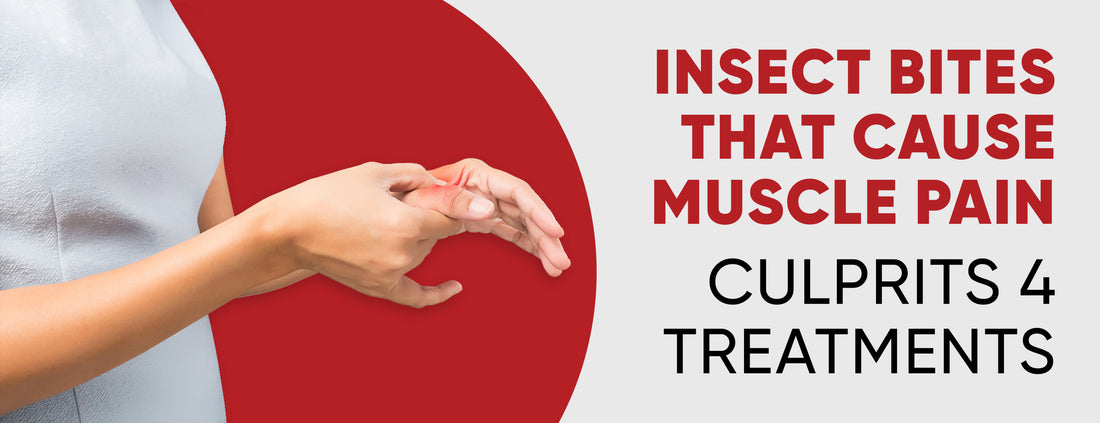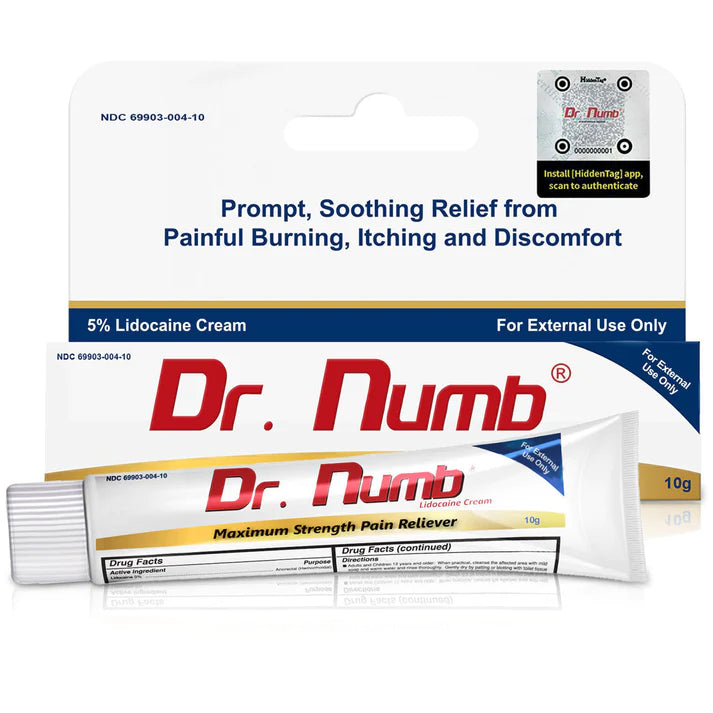Insect bites that hurt are primarily caused by venom and toxins released by certain insects. Some insect bites can also lead to allergic reactions that cause severe muscle pain.
Hobo spider bites, brown recluse bites, and black widow bites are more serious. There may be breathing difficulties, headaches, and painful muscle cramps that require immediate medical attention.
Whether you’re an avid hiker or a nature lover, it’s essential to be familiar with the common types of insects that can cause muscle pain and how to prevent them. Keep reading to learn more about the causes and symptoms of painful insect bites and how to deal with them.
This blog post will delve into the causes, symptoms, treatment, and prevention of insect bite muscle pain.
Insect Bites That Cause Muscle Pain: Understanding The Culprits

Insect bites are commonly associated with discomfort and itching, but some can lead to more severe symptoms, such as muscle pain. Understanding the culprits behind this type of pain is essential for effectively preventing and managing these symptoms. From venomous bites to an immune response elicited by the bite, various factors contribute to bite-induced muscle pain, and this article delves into the intricate mechanisms involved.
Venom and Toxins
One of the chief culprits behind muscle pain stemming from insect bites lies in the potent venom and toxins injected into the body during the biting process. Several insect species have evolved to possess venomous attributes for defense or predation. When these insects bite, they introduce venom and toxins into the bloodstream, leading to various physiological reactions, including muscle pain. Here are some key points to consider:
Venom Composition: Various insects inject venom into their victims as a defense mechanism to aid in predation. This venom contains a cocktail of proteins and enzymes that can trigger inflammation and pain in the surrounding muscles.
Localized Muscle Reaction: The venom injection can lead to an immediate localized reaction, causing muscle fibers to contract and spasm. This contraction, combined with inflammation, contributes to the sensation of muscle pain.
Common Culprits: Insects such as bees, wasps, hornets, and ants deliver venomous stings that can result in muscle pain. The severity of the reaction may vary depending on the individual's sensitivity to the venom.

Allergic Reactions to Insect Venom
Muscle pain resulting from insect bites goes beyond a localized response and indicates an allergic reaction. These reactions can range from mild discomfort to severe complications. Delving deeper into this aspect reveals:
Immune System Sensitivity: Allergic reactions occur when the immune system identifies insect venom as a threat and initiates an exaggerated response. This response can trigger the release of chemicals that cause muscle pain and inflammation.
Systemic Symptoms: Muscle pain accompanied by widespread swelling, itching, hives, and even difficulty breathing could signal a severe allergic reaction known as anaphylaxis. In such cases, seeking immediate medical attention is crucial.
Long-term Sensitization: Repeated insect venom exposure can increase sensitivity, amplifying muscle pain, and overall allergic reaction. This phenomenon emphasizes the importance of addressing insect bites promptly and adequately.
Viral and Bacterial Infections
Beyond venom and allergic reactions, insect bites can also act as vectors for viral and bacterial infections. These infections may cause muscle pain and pose broader health risks. Consider the following:
Transmission of Pathogens: Insects like mosquitoes and ticks are notorious for transmitting viruses (e.g., West Nile virus) and bacteria (e.g., Lyme disease bacteria). Once introduced into the bloodstream through a bite, these pathogens can trigger muscle pain and inflammation as part of the body's immune response.
Inflammatory Response: Infections from insect bites can lead to a heightened immune response, with immune cells targeting infected tissues, including muscles. This immune activity can manifest as muscle pain and discomfort.
Timely Diagnosis and Treatment: Recognizing the symptoms of viral and bacterial infections transmitted by insects is crucial for early intervention. Muscle pain accompanied by fever, fatigue, and other systemic symptoms should prompt a visit to a healthcare professional.
Muscle Pain From Insect Bites: 4 Treatment Methods

There are a few critical strategies with evidence-backed results when alleviating these symptoms. Here we will discuss the most effective ways to soothe insect bite-induced muscle pain.
Apply Ice and Heat To The Affected Area
The use of ice and heat on the area affected by insect bites can help reduce inflammation and muscle pain. Cold therapy helps numb the area, providing instant relief from pain and itching. Heat therapy, on the other hand, increases blood flow and promotes tissue healing. Here are the steps to using ice and heat therapy:
- Wrap an ice pack in a towel and apply it to the affected area for 10-15 minutes.
- If the pain persists, apply a warm compress for 10-15 minutes.
- Alternate between hot and cold therapy for maximum relief.
Topical Creams and Ointments For Pain Relief
Topical creams and ointments, such as the brand DR. Numb®, which contain pain-relieving ingredients like lidocaine or hydrocortisone, can help reduce muscle pain. These products work by blocking nerve signals and reducing inflammation. Following are the steps to using topical creams and ointments:
- Wash your hands with soap and water before applying the cream or lotion.
- Apply a thin layer of the product to the bite.
- Repeat the application 2-3 times daily or as needed for relief.

Over-the-Counter Pain Medications For Temporary Relief
Over-the-counter pain medications, such as acetaminophen or ibuprofen, can help relieve muscle pain and inflammation caused by insect bites. These medicines reduce the production of prostaglandins, which cause pain and inflammation. Follow these steps to use over-the-counter pain medications:
- Follow the manufacturer's instructions on the label.
- Take the medicine with food or milk to avoid stomach irritation.
- Do not exceed the recommended dosage.
Proper Wound Care To Prevent Infection
Proper wound care is essential for preventing muscle pain infection and reducing the risk of complications from insect bites. Here are some guidelines for appropriate wound care:
- Clean the affected area with soap and water.
- Apply an antiseptic solution, such as hydrogen peroxide, to the bite.
- Cover the area with a sterile bandage or dressing.
- Change the dressing daily and monitor the wound for signs of infection, such as redness, warmth, or discharge.
Prevent Pain From Insect Bites: 4 Effective Ways
You can take several effective measures to protect yourself from these bites, which we will explore below:
Wear Protective Clothing
Wearable protective clothing outdoors can be an effective way to prevent insect bites. Some recommended clothing items to consider include:
- Long-sleeved shirts.
- Long pants.
- Socks.
- Closed-toe shoes.
Wearing light-colored clothing can also help, as insects are often attracted to darker colors.
Use Insect Repellents

The use of insect repellents containing DEET is another way to avoid insect bites. The American Academy of Pediatrics recommends using repellents with DEET concentrations of 10 to 30 percent for children over two months old and adults. Be sure to follow the instructions on the label when applying insect repellent.
Avoid Known Insect Infestations
Avoiding areas with known insect infestations is another way to prevent insect bites. Areas with standing water, such as ponds and lakes, can harbor mosquitoes. Similarly, tall grass and areas with dense vegetation can have ticks.
Practice Proper Hygiene and Sanitation
Proper hygiene and sanitation practices can also help to prevent attracting insects. Here are some tips to follow:
- Keep your surroundings clean and free of debris.
- Dispose of trash properly.
- Cover food and drinks when outdoors.
- Bathe regularly to keep your skin clean and limit odors that attract insects.
Muscle Pain Caused by Insect Bites: 5 Symptoms
Insect bites are not only irritating, but many of them can also cause muscle pain. The symptoms of these bites can vary from person to person, depending on the insect type and the edge's severity. We will discuss the common pain symptoms of insect bites and their related causes.

Muscle and Joint Pain
Muscle and joint pain is a primary symptom. The severity of the pain can vary from mild to severe, and it's usually localized to the affected area. In some cases, the pain can also spread to other parts of the body. An insect's venom or toxin is generally responsible for this symptom.
Muscle Fatigue and Pain
A common symptom of insect bites that causes muscle pain is fatigue and pain. This can cause weakness in the affected area and may make it difficult to move the affected limb. This symptom is caused by an immune response to venom or toxin injected into the body.
Severe Muscle Pain
Insect bites can cause severe muscle pain. This can be extremely painful and can require medical attention. A reaction to the insect's venom or toxin usually causes this symptom.
Nausea and Muscle Pain

Insect bites can also cause muscle pain and nausea. The venom or toxins of the insect usually cause this symptom. If this symptom persists or worsens, you should seek medical attention immediately.
Swelling and Muscle Pain
An insect bite can also cause swelling and muscle pain. Swelling is usually limited to the affected area and can be accompanied by redness and itchiness. A common cause of this symptom is the immune response to the venom or toxin that the insect has injected into the body.
Conclusion
You can prevent and manage bites from insects that cause muscle pain, which can be debilitating and frustrating. Treatment can make all the difference if you recognize and treat the symptoms.
When necessary, seek medical advice to minimize the impact of these pesky bites on your daily life. Remember that prevention is the best policy, so keep yourself protected and stay safe while enjoying the great outdoors.









